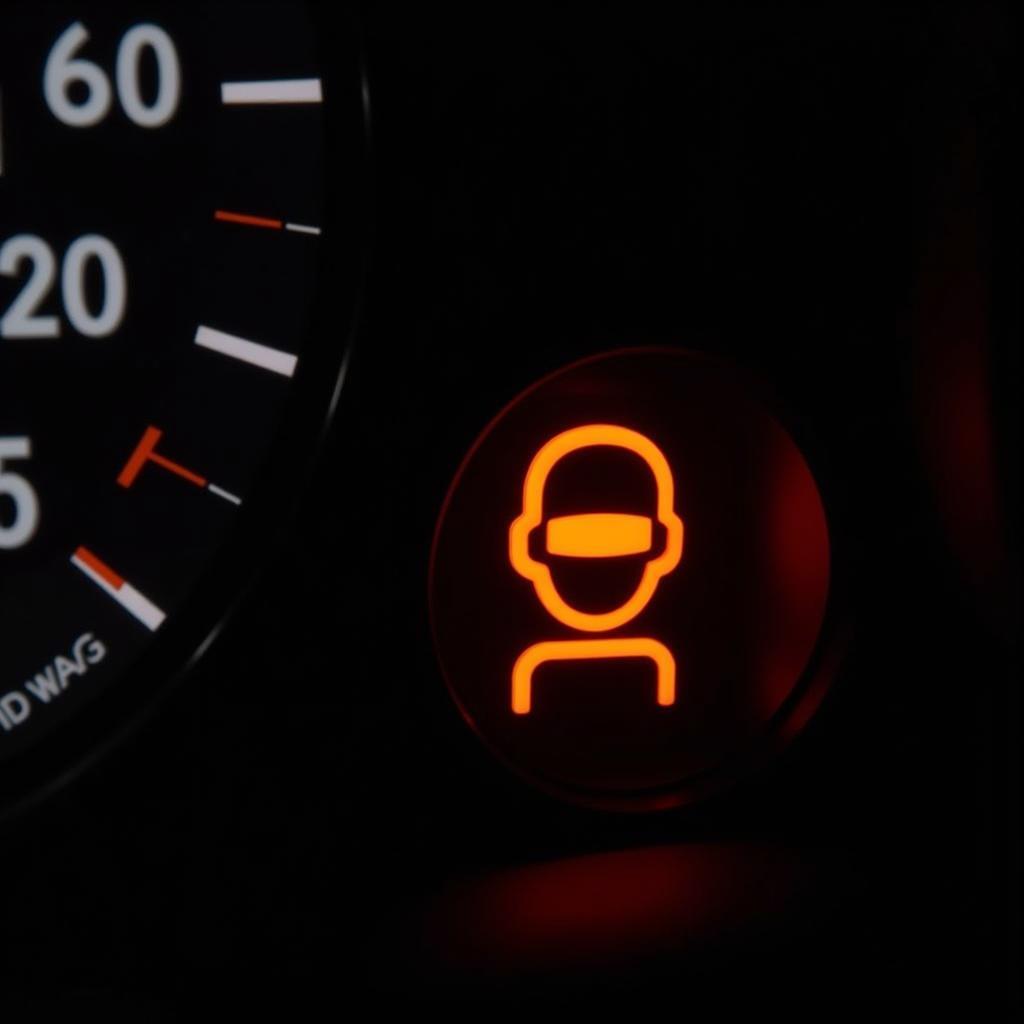A Seat Ibiza warning light related to the ignition coil can signal various issues, from minor misfires to significant engine problems. Understanding these warnings is crucial for maintaining your vehicle’s performance and longevity. Let’s dive into the common causes, diagnostic procedures, and solutions for Seat Ibiza coil-related warning lights.
 Seat Ibiza Coil Warning Light Dashboard
Seat Ibiza Coil Warning Light Dashboard
Decoding the Seat Ibiza Coil Warning Light
The most common warning light associated with ignition coil problems in a Seat Ibiza is the engine warning light, also known as the check engine light. This light can illuminate steadily or flash, depending on the severity of the problem. A steady light usually indicates a less critical issue, while a flashing light signifies a more severe problem that requires immediate attention, such as a serious misfire that could damage the catalytic converter. Besides the engine warning light, other symptoms might accompany a failing ignition coil, including rough idling, reduced power, poor fuel economy, and difficulty starting the engine. Recognizing these symptoms in conjunction with the warning light can help pinpoint the issue. For example, if you’re experiencing a gmc truck key fob issue alongside your engine problems, it’s crucial to address both separately.
Common Causes of Coil-Related Warning Lights
Several factors can contribute to ignition coil problems in a Seat Ibiza. These include:
- Worn or damaged spark plugs: Worn spark plugs can put extra strain on the ignition coils, leading to premature failure.
- Faulty ignition coil: Over time, ignition coils can degrade due to heat and vibration, eventually failing.
- Damaged wiring or connectors: Corroded or damaged wiring and connectors can disrupt the electrical signals to the ignition coils.
- Vacuum leaks: Vacuum leaks can affect the air-fuel mixture, leading to misfires and stressing the ignition coils.
- Fuel system issues: Problems with the fuel pump, fuel filter, or fuel injectors can also contribute to misfires and coil-related warning lights.
Diagnosing the Problem
Diagnosing a coil-related warning light requires a systematic approach. Here’s a step-by-step guide:
- Retrieve Diagnostic Trouble Codes (DTCs): Use an OBD-II scanner to read the DTCs stored in the car’s computer. These codes provide valuable clues about the nature of the problem.
- Visual Inspection: Inspect the ignition coils, spark plugs, wiring, and connectors for any visible signs of damage or wear.
- Testing the Ignition Coils: Use a multimeter to test the resistance of the ignition coils and compare it to the manufacturer’s specifications.
- Testing the Spark Plugs: Inspect the spark plugs for wear and tear and test them using a spark plug tester.
Solutions and Repairs
Once the problem is diagnosed, the necessary repairs can be carried out. Common solutions include:
- Replacing the faulty ignition coil(s): This is the most common solution for coil-related problems.
- Replacing worn spark plugs: It’s often advisable to replace the spark plugs alongside the ignition coils.
- Repairing or replacing damaged wiring or connectors: Addressing wiring issues can prevent future problems.
- Fixing vacuum leaks: Identifying and repairing vacuum leaks can improve engine performance and reduce stress on the ignition coils.
Sometimes, a simple fix like reprogramming your gmc key fob can solve seemingly unrelated electrical issues. However, coil-related warning lights require a more targeted approach.
What if the Warning Light Persists?
If the warning light persists even after repairs, further investigation is needed. Consider consulting a qualified mechanic specializing in Seat Ibiza vehicles for a more thorough diagnosis and repair. They might have specialized equipment and knowledge to identify more complex issues. This is particularly important if you’ve tried how to reprogram key fob yourself without success.
Conclusion
Addressing Seat Ibiza warning lights related to the ignition coil promptly is essential to prevent further engine damage and ensure optimal vehicle performance. By understanding the causes, diagnostic procedures, and solutions, you can take the necessary steps to keep your Seat Ibiza running smoothly. Ignoring these warnings can lead to more significant problems down the road, so early intervention is key. Remember to always consult a qualified mechanic if you’re unsure about any aspect of the diagnostic or repair process.
FAQ
- Can I drive my Seat Ibiza with the coil warning light on? While you might be able to drive for a short distance, it’s not recommended. Driving with a misfire can damage the catalytic converter.
- How much does it cost to replace an ignition coil in a Seat Ibiza? The cost varies depending on the specific model and labor rates.
- How often should I replace my Seat Ibiza’s spark plugs? Consult your owner’s manual for the recommended spark plug replacement interval.
- Can a bad ignition coil cause other problems? Yes, a faulty ignition coil can lead to various issues, including reduced fuel economy and increased emissions.
- What tools do I need to diagnose a coil-related problem? An OBD-II scanner and a multimeter are essential tools for diagnosing ignition coil issues.
- Can I replace the ignition coil myself? If you have some mechanical experience, it’s possible. However, it’s recommended to consult a repair manual or seek professional help.
- Where can I find reliable information on Seat Ibiza repair procedures? Reputable online forums, repair manuals, and professional mechanics are valuable resources. If you’re having key fob issues, particularly with a gmc sierra key fob, it’s best to consult a specialized technician. Similarly, for issues with a gmc terrain key fob, expert assistance is recommended.

